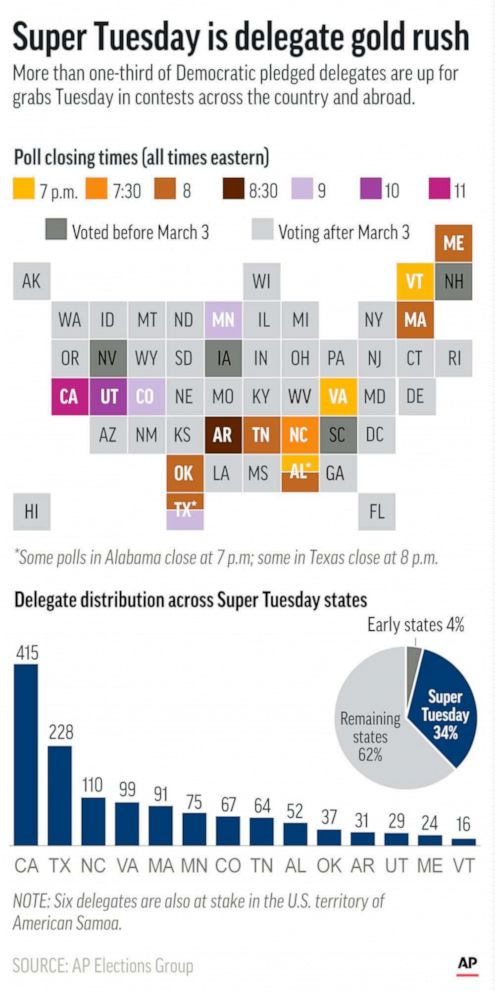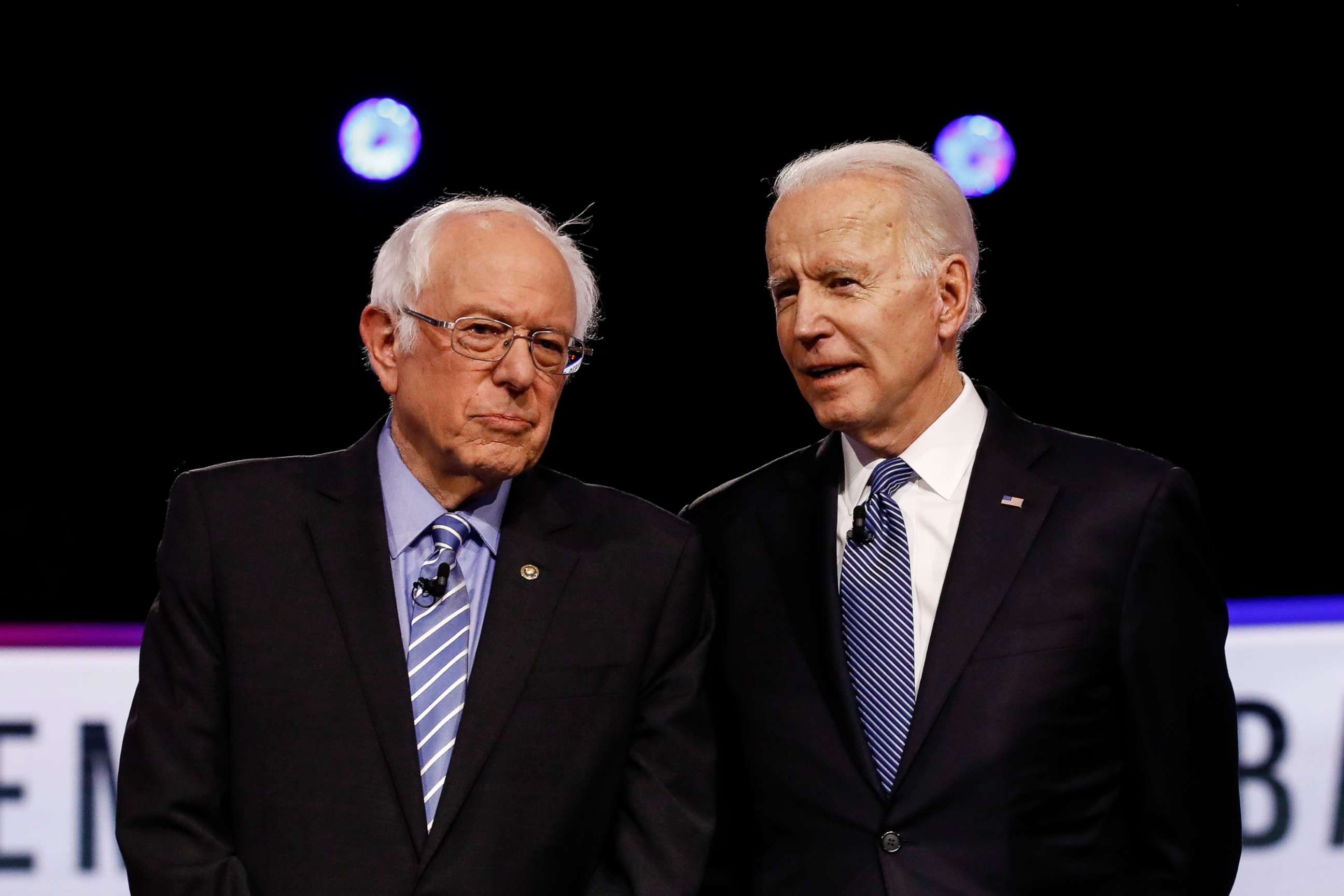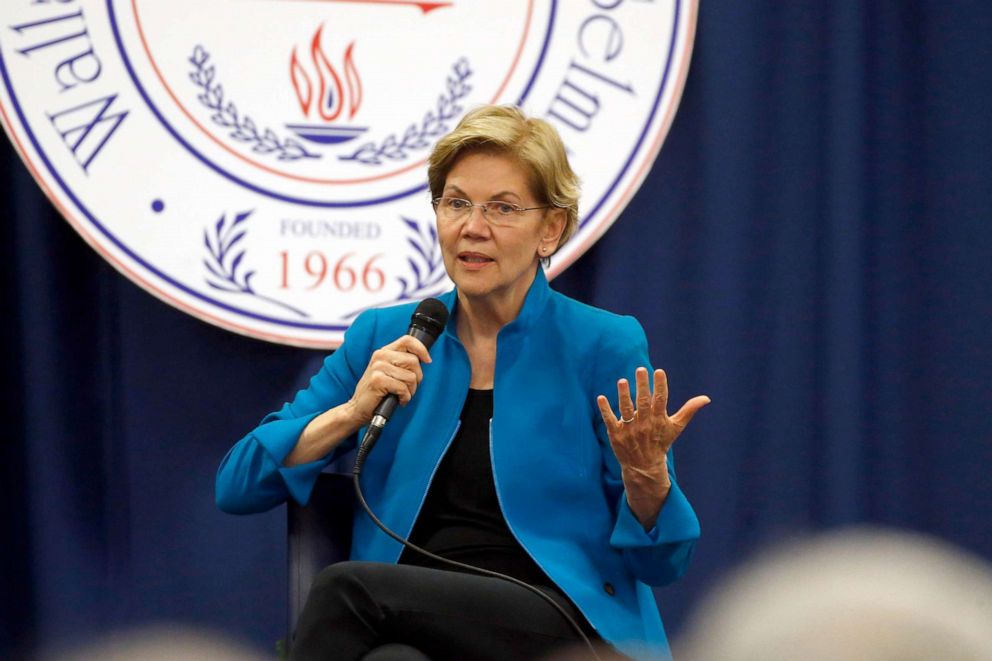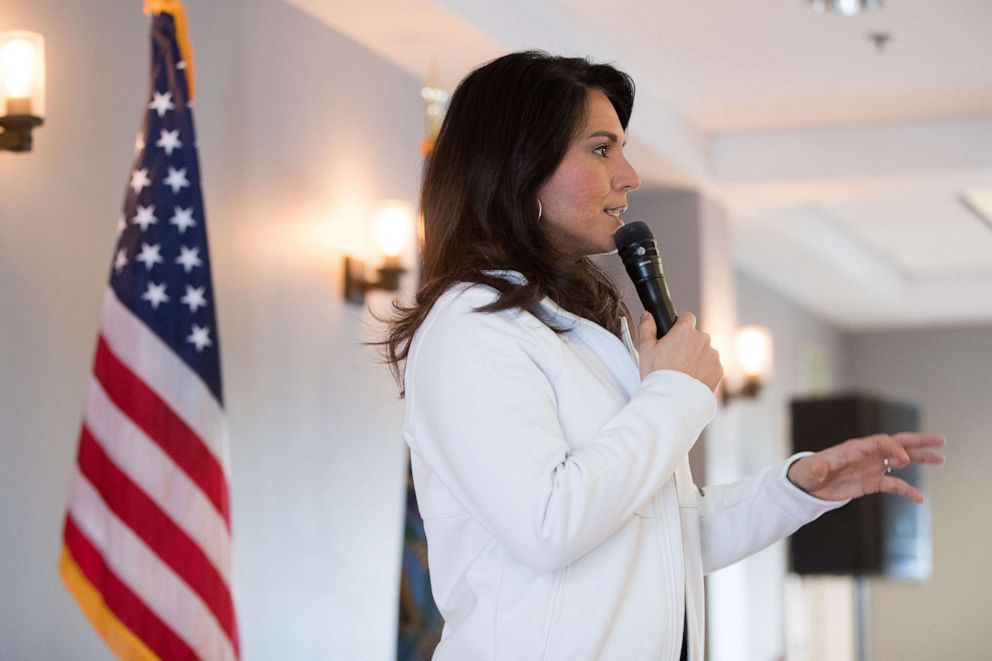Super Tuesday raises 2020 stakes as candidates face 1st national test
The single biggest day of voting in the campaign takes place Tuesday.
The four early nominating contests might be over, but this week Democrats face a significant turning point in the 2020 presidential race when the candidates are tested on a national scale -- potentially providing more clarity over who in the fractured battle will ultimately face President Donald Trump.
With the single biggest day of voting in the campaign taking place on Super Tuesday, the candidates are competing across 15 contests for a treasure chest of delegates, which will be awarded across geographically and racially diverse parts of the country -- and the stakes could not be higher.
The presidential hopefuls still in the race are each utilizing their own pathway to score big on Super Tuesday, and while all of them have campaigned in California and Texas, the two most delegate-rich states of the night, not everyone will emerge a winner. With over one-third of pledged delegates up for grabs Tuesday, each of the candidates are hoping to walk away with their version of a win in order to demonstrate they can campaign anywhere.

Even so, it remains to be seen if any of the contenders will establish a commanding lead after Tuesday night. Beyond the current front-runner, Vermont Sen. Bernie Sanders, the other Democrats are all seeking to shift the contours of the race.
On Tuesday, across 14 states -- Alabama, Arkansas, California, Colorado, Maine, Massachusetts, Minnesota, North Carolina, Oklahoma, Utah, Tennessee, Texas, Vermont and Virginia -- and one territory, American Samoa, 1,344 delegates are up for grabs.
Former Vice President Joe Biden enters Tuesday fresh off a resounding win in South Carolina’s primary and a slew of nearly 50 endorsements since Saturday from current and former Democratic leaders up and down the ballot, including two of his now-former rivals, former South Bend, Indiana, Mayor Pete Buttigieg and Minnesota Sen. Amy Klobuchar.
Biden, too, currently is the leader of the popular vote, and seeks to use the boon to his campaign to overtake his rival Sanders in the delegate race.
"Tomorrow, Texas and Minnesota and the rest of Super Tuesday states -- you’re gonna have a lot to say about it," Biden said in Dallas on the eve of Super Tuesday, shortly after Buttigieg and Klobuchar formally announced they are backing his campaign. "My message to everyone, every person who's been knocked down, counted out, left behind: This is your campaign. We need you. We want you, and there's a place in this campaign for you. So join us."

With the moderate former candidates coalescing around his bid, and a two-person race appearing to form, Biden is looking to the southern states with larger African American populations -- such as Alabama, North Carolina, and Virginia -- to build on his sudden surge of momentum.
"You know, just a few days ago, the pundits declared my campaign dead ... but then along came South Carolina," Biden said in Houston on Monday. "And South Carolina had something to say about it. As I stand here today, because of the minority communities, I am very much alive because of you."
For the Biden campaign, running up the score across districts, although perhaps not statewide, could deliver a successful night.
But Sanders, after a clean win in New Hampshire, a decisive victory in Nevada, and second-place finishes in Iowa and South Carolina gave him the delegate advantage, is aiming to amass an even wider delegate lead to make the case that he is the one to take on Trump in November.
"This I believe from the bottom of my heart or I would not be here today or I would not have gotten into this race, I believe that if you want to defeat Donald Trump -- and all Democrats do, most independents do, some Republicans do -- if you want to beat Donald Trump, our campaign is the strongest campaign to defeat Trump," he said in Salt Lake City on Monday.
California and Texas have 415 and 228 pledged delegates, respectively, making both states top targets across the board -- and in recent polling, it is Sanders who is leading the field in both.

And the liberal stalwart is banking on the Golden State for not only a win, but a dominant victory, hoping to emerge from Tuesday with such a wide margin over the field that his campaign has an insurmountable path to the nomination.
"Now, let me tell you why we are going to win the Democratic nomination," Sanders told a crowd of more than 15,000 in Los Angeles Sunday night. "Why we're going to win here in California and why we are going to defeat, and defeat badly, Donald Trump, we are going to win because we have the strongest grassroots movement, multi-racial, multi-generational in the history of this country."
Sanders is also eyeing Texas to showcase his electability not only in parts of the country where he is expected to win, but battlegrounds where he can tout his appeal ahead of a highly-competitive general election against Trump.
Super Tuesday also marks the first appearance of former New York City Mayor Mike Bloomberg on the ballot. After skipping the first four early states, the billionaire has spent more than half a billion dollars of his own cash blanketing the airwaves since his late start in the race. Across the 14 states that vote on Tuesday, he’s spent nearly $174 million, dwarfing his Democratic rivals.
He’s also the only candidate who has campaigned in every Super Tuesday state, accomplishing the feat more than a month ago. Now, he’s looking for a return on his massive political investment, despite never topping a national poll.
And he remains confident of his chances.

"I’ve won three elections so far and I don’t plan on losing now," Bloomberg said in Virginia on Monday. For years, Bloomberg has invested his own money to elect state Democrats and combat gun violence across the state, and he held his first campaign event in Norfolk, back when he entered the race in late November, to tout the ability of the "right Democrat" to turn a battleground state blue.
Beyond California, Texas and North Carolina, his key targets for ads and the three biggest delegate prizes of the night, Bloomberg's campaign also singled out Oklahoma, Arkansas and Tennessee as three states where they believe he is competitive in the hopes of racking up delegates across the national map.
For Elizabeth Warren, the stakes could not be higher on Tuesday, as both states she claims as home are in play -- Massachusetts, which she has represented in the Senate since 2013, and Oklahoma, where she was born and raised and often invokes on the campaign trail to tell the story of her childhood.
But neither state is a lock for her, with Sanders seeking to pick off his progressive rival in her own backyard. Warren, for her part, has been careful not to set any expectations for a win, particularly in the Bay State.
"Look, I'm here fighting for every vote… I'm just grateful to those folks, always grateful," she said in a CNN town hall Wednesday, not answering definitively when asked if Massachusetts is a "must win" for her.
While the Warren campaign might be focusing on raking in delegates "in nearly every state," according to a memo from the campaign, coming out of Tuesday without a single victory could potentially spell trouble in the races ahead. Warren is up against growing pressure to perform well, after one of the most recent drop-outs, Buttigieg, outperformed her in every early state, even scoring the most delegates of all the candidates in first-in-the-nation state of Iowa.
But Warren contends that the 2020 primary is "barreling toward another primary along the same lanes as 2016," offering voters only a binary choice between "an insider" and "an outsider." And she believes her campaign offers a different path forward.
"Voters deserve a choice of someone with unshakeable values who can also get things done, and bring all kinds of Democrats along with her," she told supporters in Los Angeles Monday night. "Voters deserve a choice of someone who can both do the work to transform our government from the inside and who can bring pressure to bear on government by leading a grassroots movement from the outside."
Also still in the race is Hawaii Rep. Tulsi Gabbard, despite having yet to come close to the required threshold needed to pick up any delegates.
But it’s possible that changes on Super Tuesday, since the one territory holding a contest Tuesday is also her birthplace. Gabbard, the last candidate of color in the race and now the youngest as well, was born in Leloaloa, American Samoa.
The territory’s caucus will award six delegates on Tuesday.
This report was featured in the Tuesday, March 3, 2020, episode of “Start Here,” ABC News’ daily news podcast.
"Start Here" offers a straightforward look at the day's top stories in 20 minutes. Listen for free every weekday on Apple Podcasts, Google Podcasts, Spotify, the ABC News app or wherever you get your podcasts.




